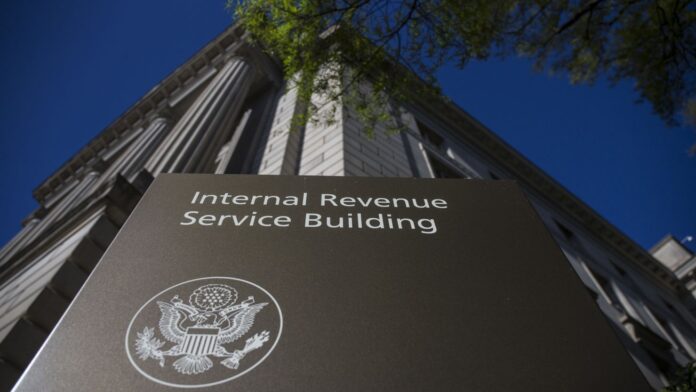The IRS, or US Internal Revenue Service, has unveiled a fresh draft version for the 1099-DA tax form, used by crypto brokers and investors to report certain digital asset transactions from the upcoming tax period in 2025. The new version is a considerable step forward from the original draft presented in April 2024.
The new draft regulation is available on IRS website for the next 30 days. There are problems that have been fixed with modification of that last rule. But experts consider that, for the benefit of crypto investors everywhere, the IRS could achieve a better grasp of things.
Key Changes In The Updated IRS 1099-DA Form:
– Eliminate forcing investors to disclose their wallet address and transaction ID, a privacy concern
– Eliminate forcing the inclusion of the time transactions took place, only the date is required
– Brokers do not need to indicate on the form what type of brokerage they are involved in
“The new Form 1099-DA will help taxpayers comply with the complex world of digital assets,” IRS Office of Digital Asset Initiative Directors Raj Mukherjee and Seth Wilks said in an email.
What They Are Saying
Crypto tax professionals praised the revised form 1099-DA as a vast improvement over its predecessor draft.
“The first draft was overwhelming—hard to read, hard to know what to do with the information,” said Jessalyn Dean, vice president of tax information reporting at crypto tax company Ledgible. “This version is much more readable.”
Andrew Rossow, attorney and CEO at AR Media Consulting, said these changes get closer to protecting privacy concerns but still are not enough—the IRS can do a lot more to make this filing process easier for investors.
Rossow explained that while the IRS was busy focusing on the central exchanges, it was ignoring this growing decentralized finance ecosystem that actually has different rules for operating. It will throttle innovation, he said, and create an unleveled playing field in this industry.
The World Of Cryptocurrency Tax Regulations: The Way Forward
The new plan comes just two months after the tax agency issued rules for brokers about reporting on transactions in virtual currency. The statement also said that treating organized solutions, like a decentralized and self-custodied brokerage businesses, will be part of its renewed direction in the upcoming year.
The IRS has not yet finalized form 1099-DA; it might only come out for the 2025 tax year. Clearly the move made by the IRS in this regard shows increased emphasis on disclosure and observation. Although certainly a move in the right direction, the new 1099-DA form needs to be geared much more to people dealing with virtual money.
Featured image from CNN, chart from TradingView
Credit: Source link





















 Bitcoin
Bitcoin  Ethereum
Ethereum  XRP
XRP  Tether
Tether  Solana
Solana  USDC
USDC  Dogecoin
Dogecoin  Cardano
Cardano  Lido Staked Ether
Lido Staked Ether  TRON
TRON  Wrapped Bitcoin
Wrapped Bitcoin  Wrapped stETH
Wrapped stETH  Chainlink
Chainlink  Avalanche
Avalanche  Sui
Sui  Stellar
Stellar  Litecoin
Litecoin  Toncoin
Toncoin  Shiba Inu
Shiba Inu  Hedera
Hedera  LEO Token
LEO Token  USDS
USDS  Hyperliquid
Hyperliquid  Polkadot
Polkadot  WETH
WETH  MANTRA
MANTRA  Bitcoin Cash
Bitcoin Cash  Bitget Token
Bitget Token  Ethena USDe
Ethena USDe  Wrapped eETH
Wrapped eETH  Uniswap
Uniswap  Monero
Monero  NEAR Protocol
NEAR Protocol  Pepe
Pepe  WhiteBIT Coin
WhiteBIT Coin  Bittensor
Bittensor  Ondo
Ondo  Aave
Aave  Aptos
Aptos  Internet Computer
Internet Computer  Dai
Dai  Official Trump
Official Trump  Mantle
Mantle  Ethereum Classic
Ethereum Classic  Tokenize Xchange
Tokenize Xchange  OKB
OKB  Gate
Gate  sUSDS
sUSDS  Sonic (prev. FTM)
Sonic (prev. FTM) 
